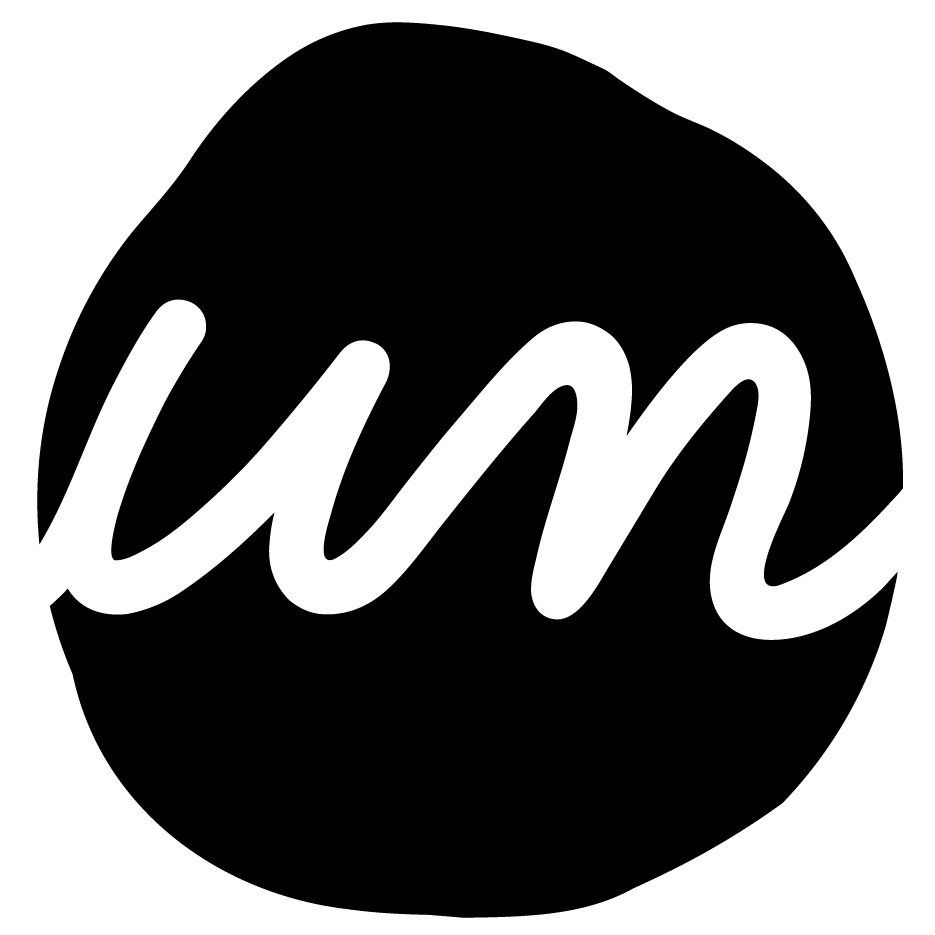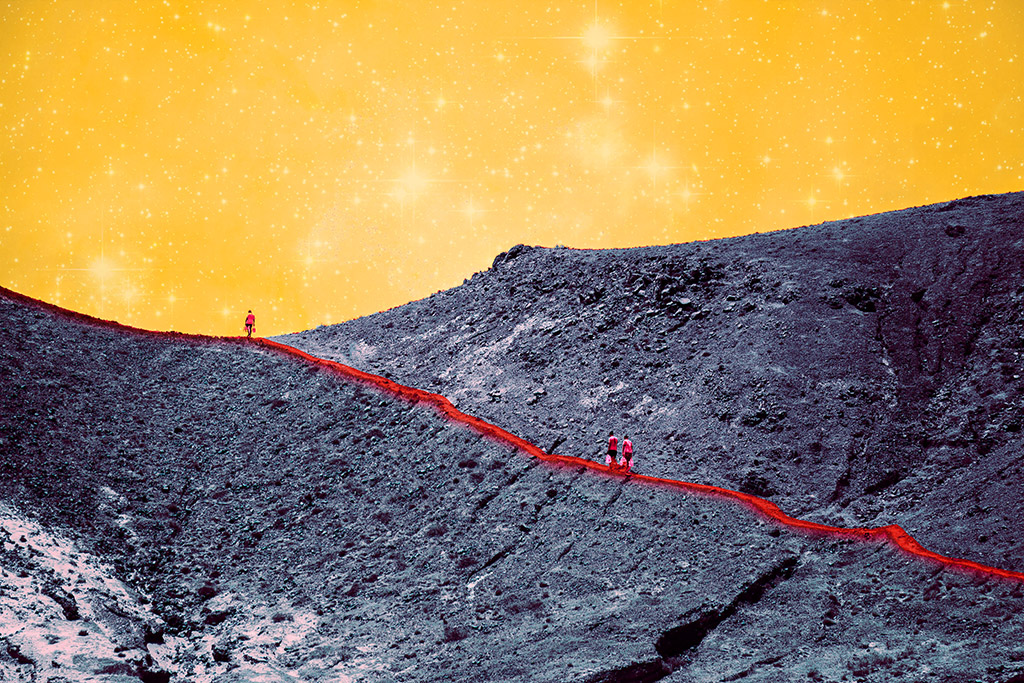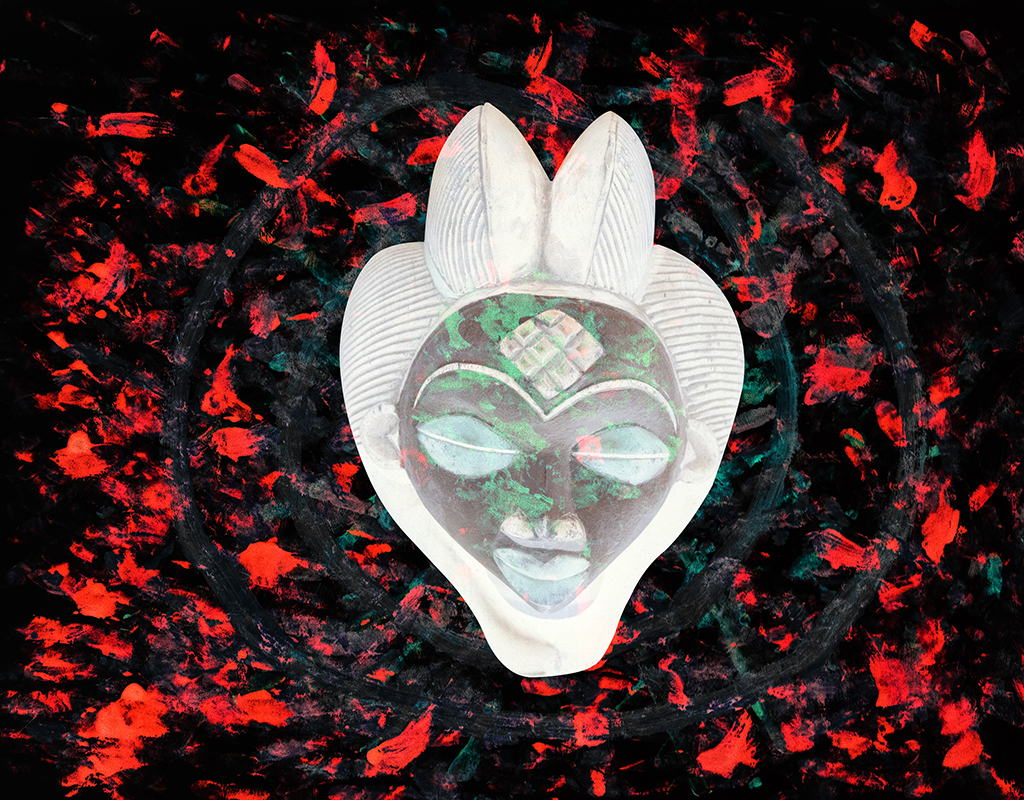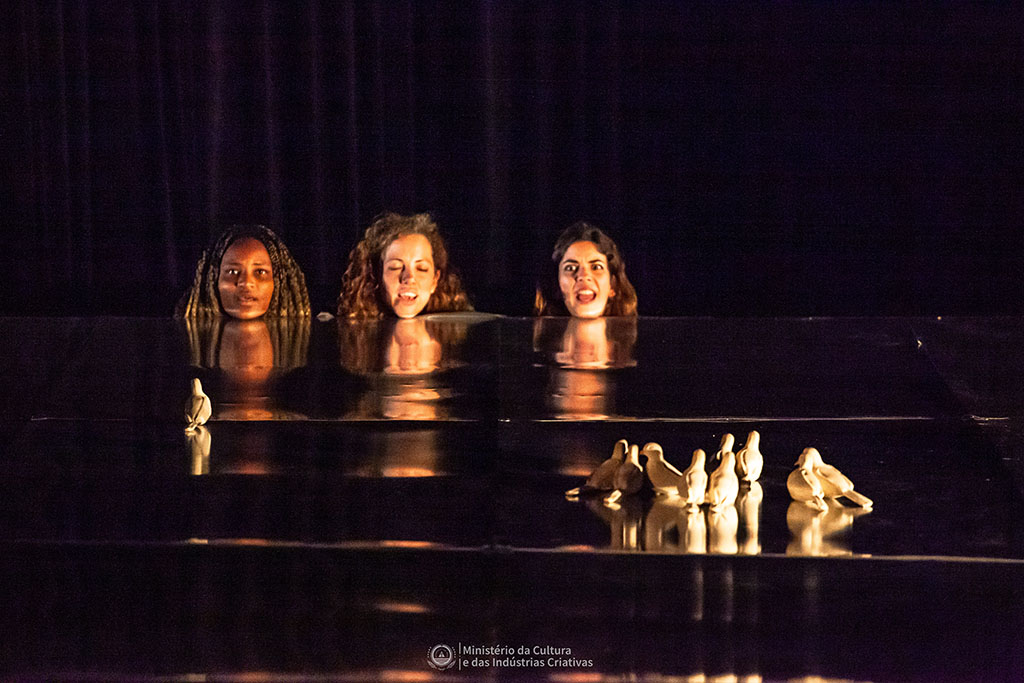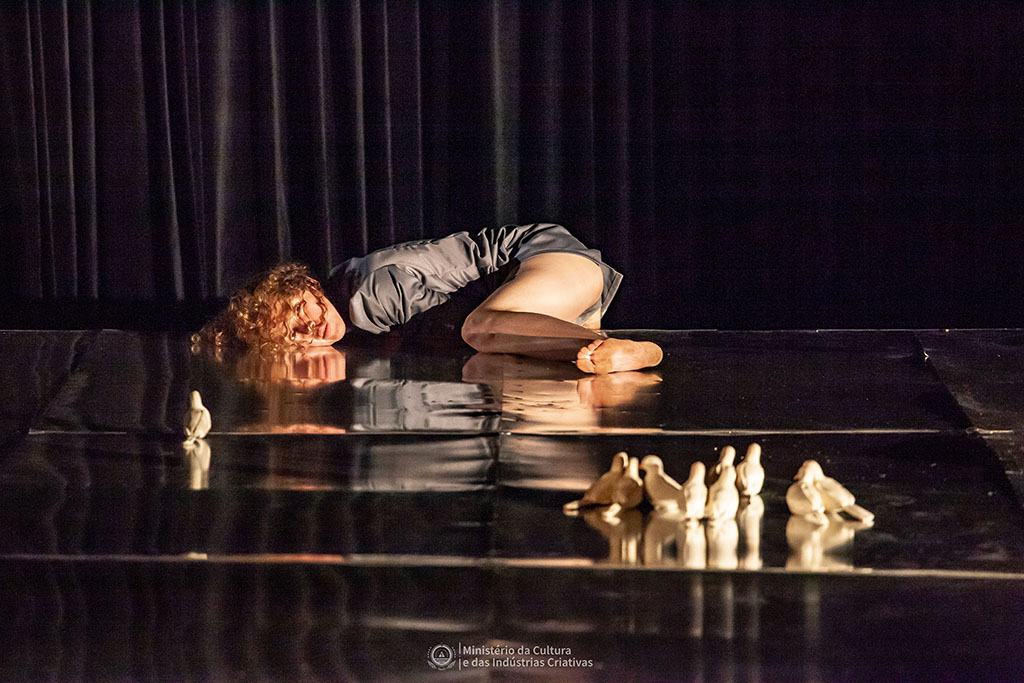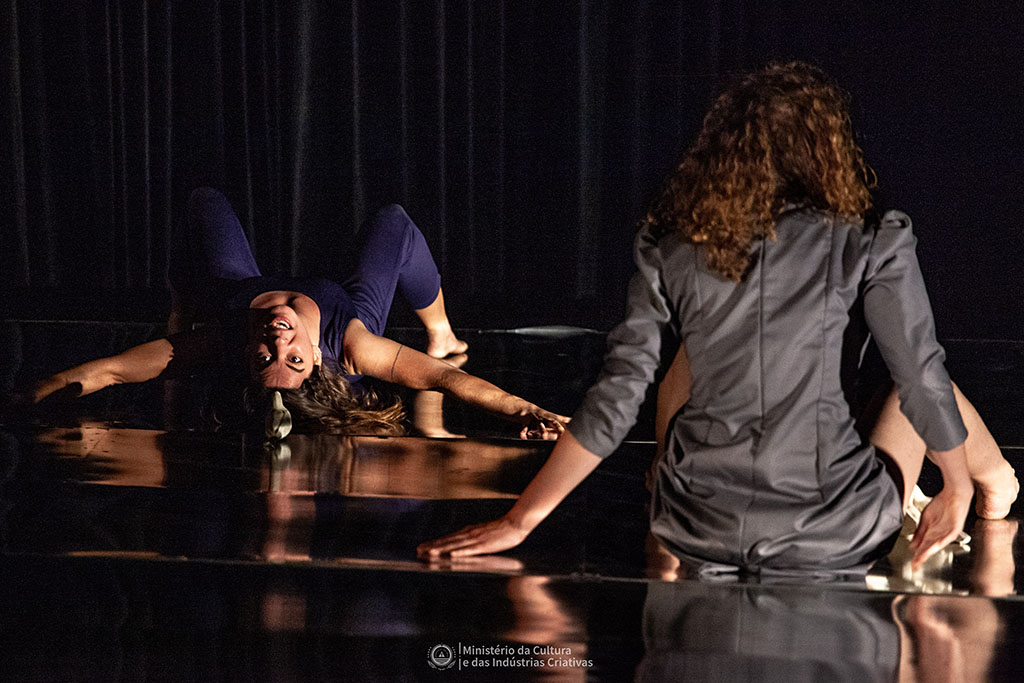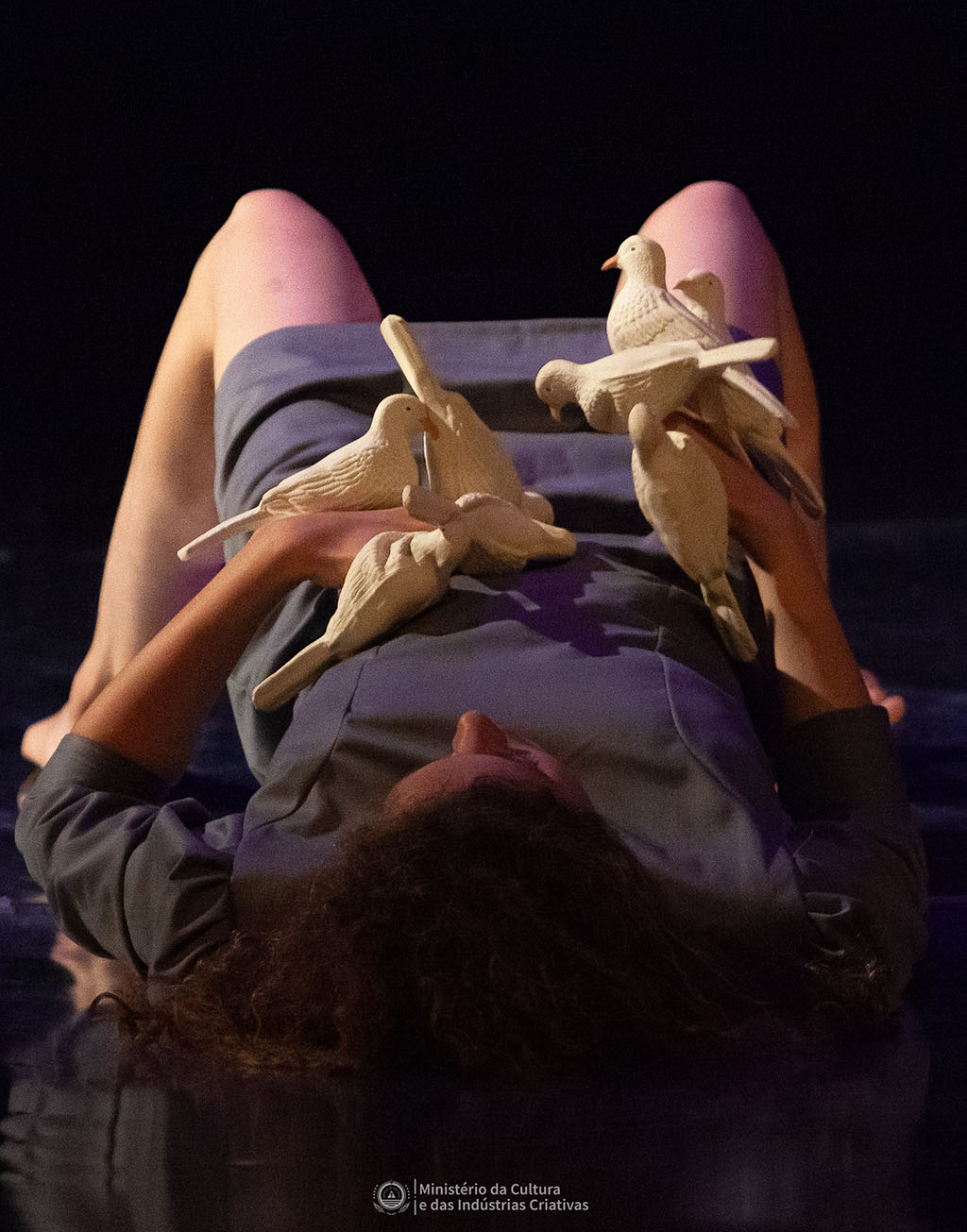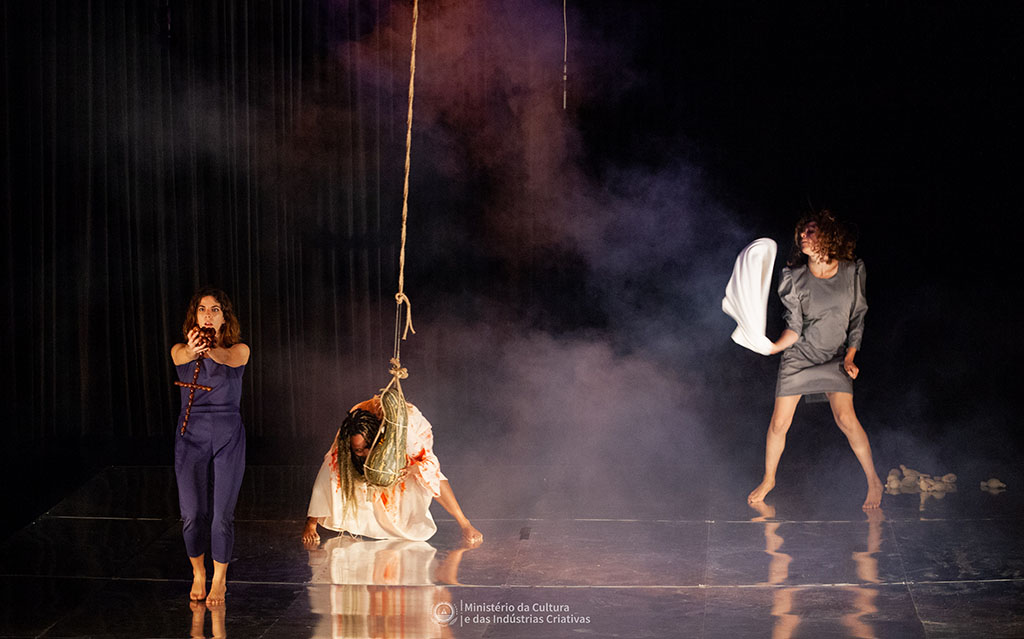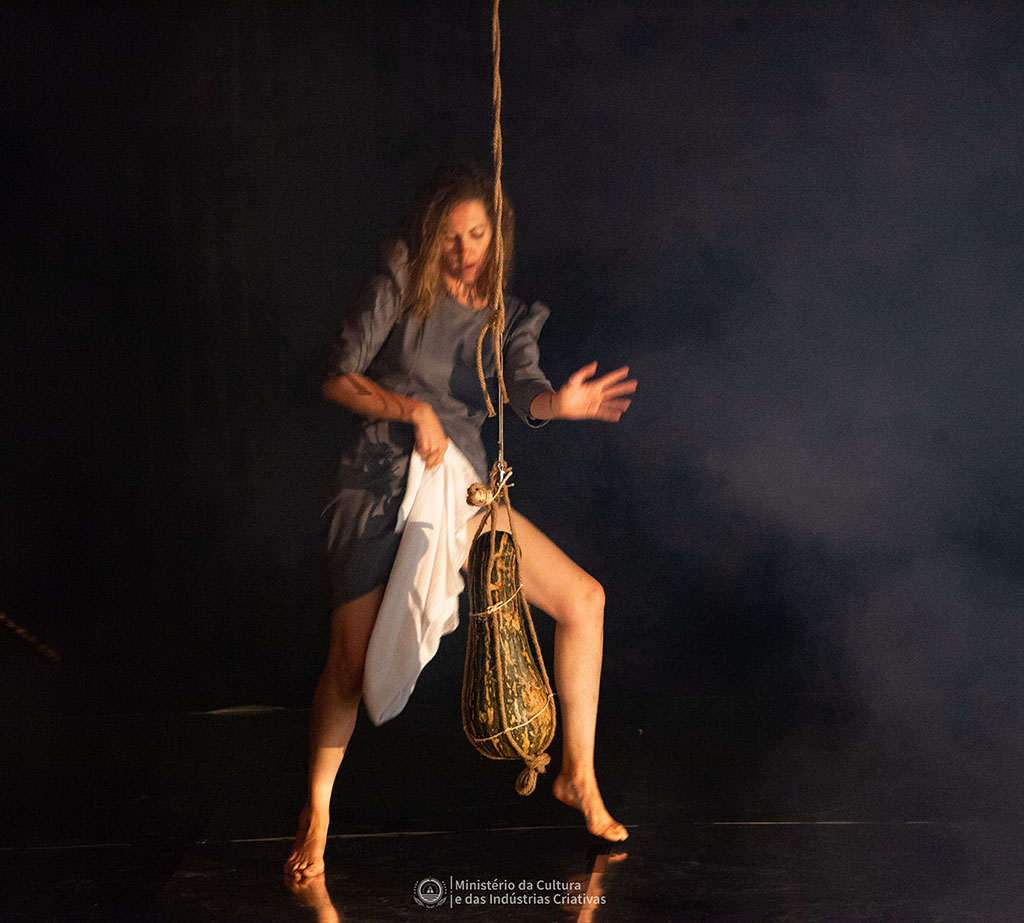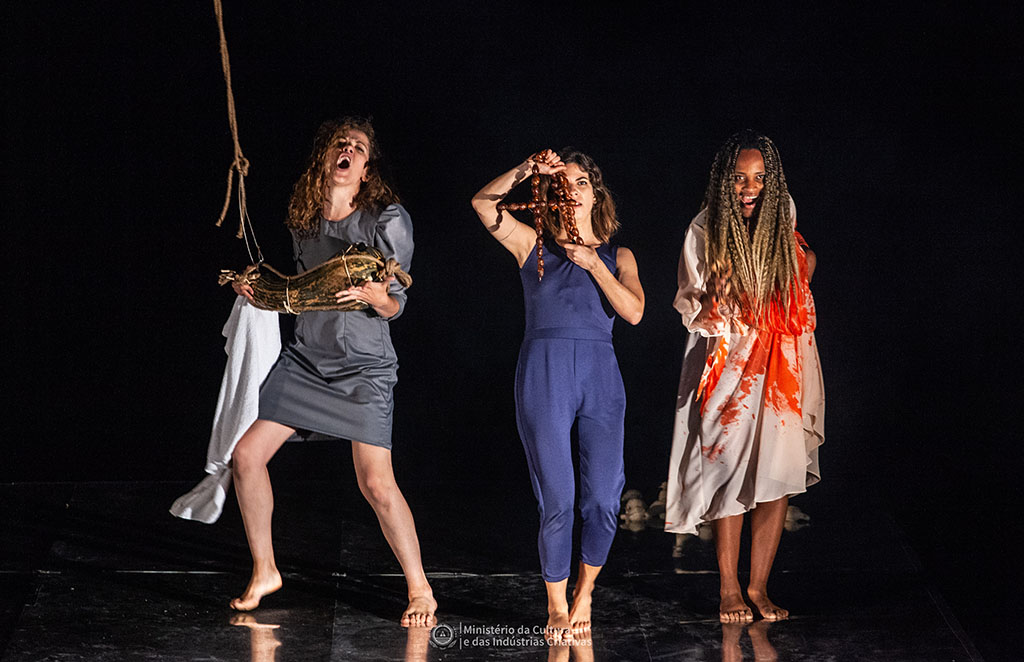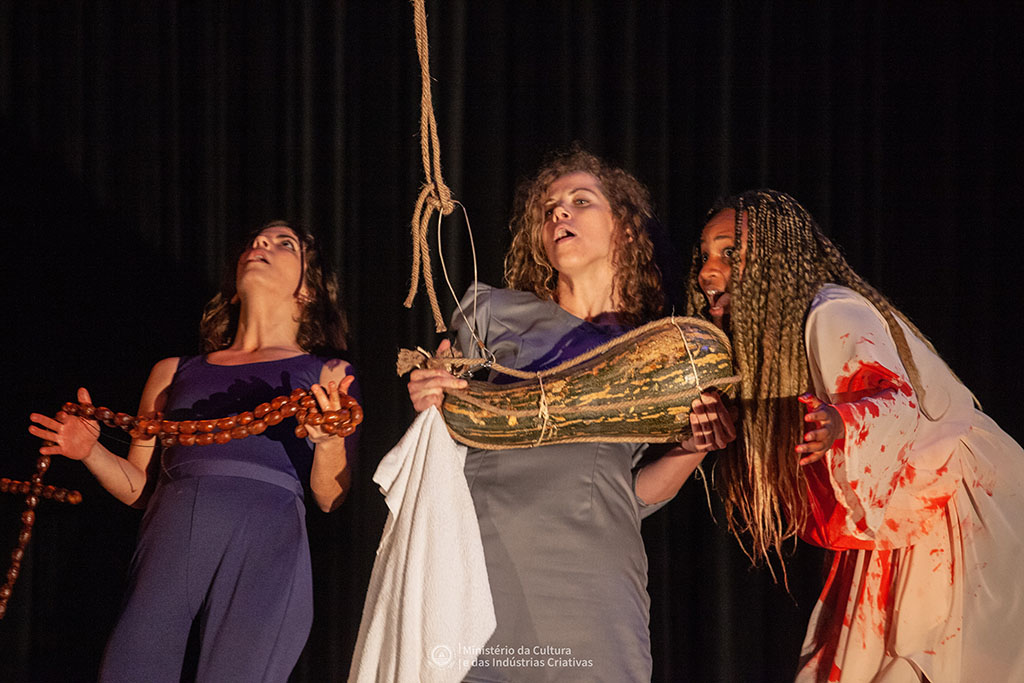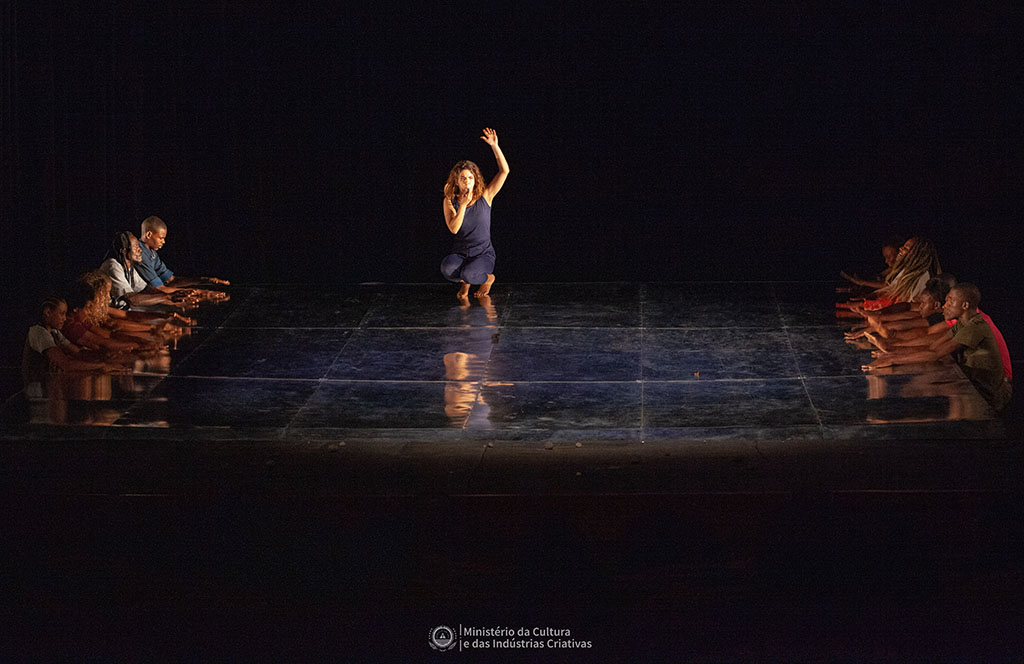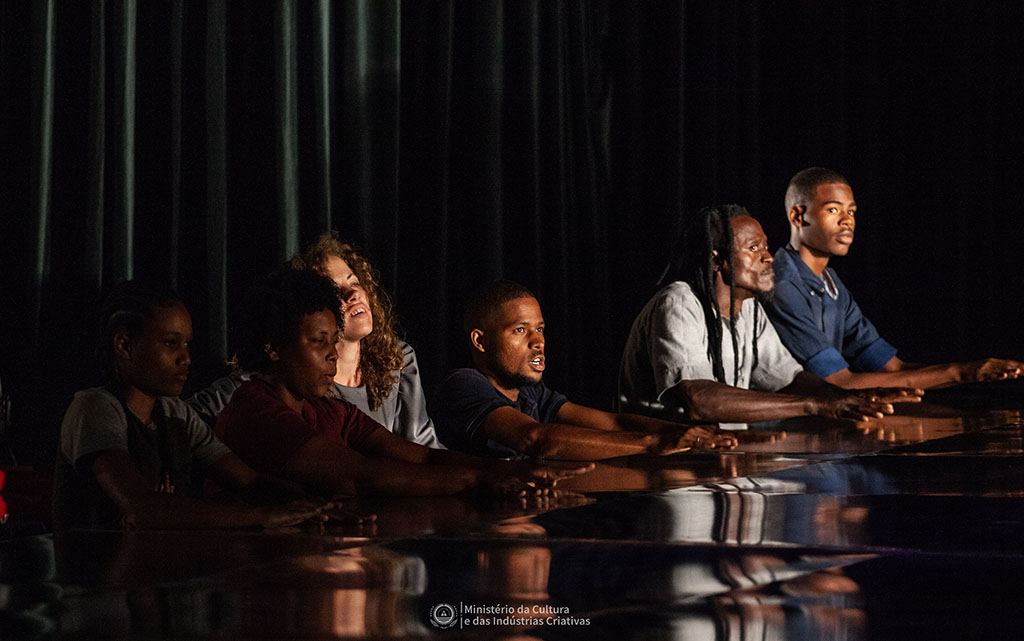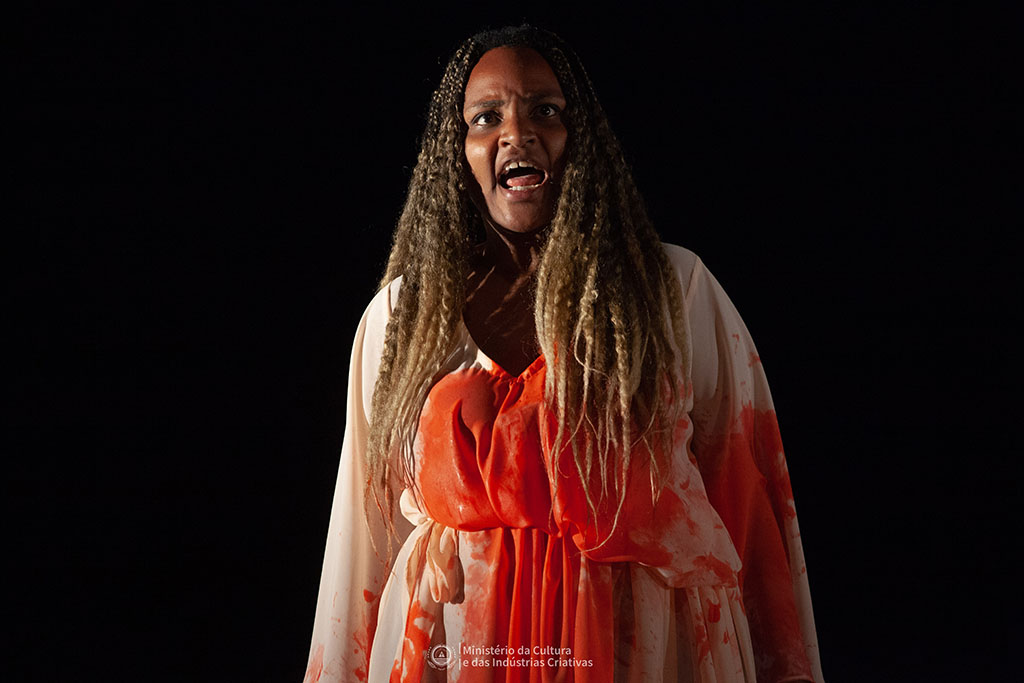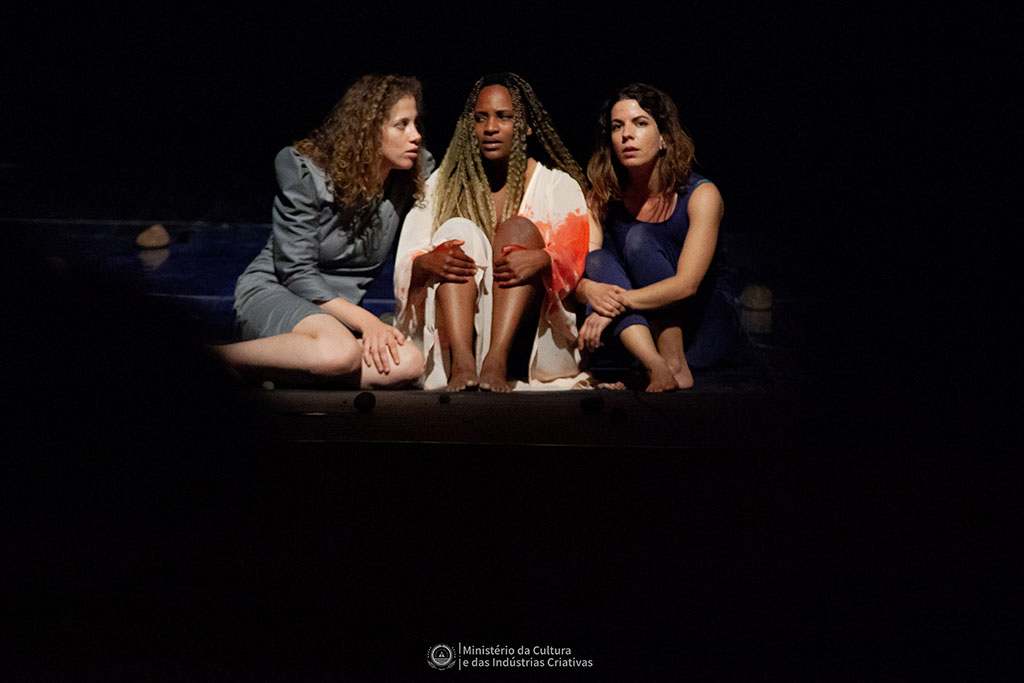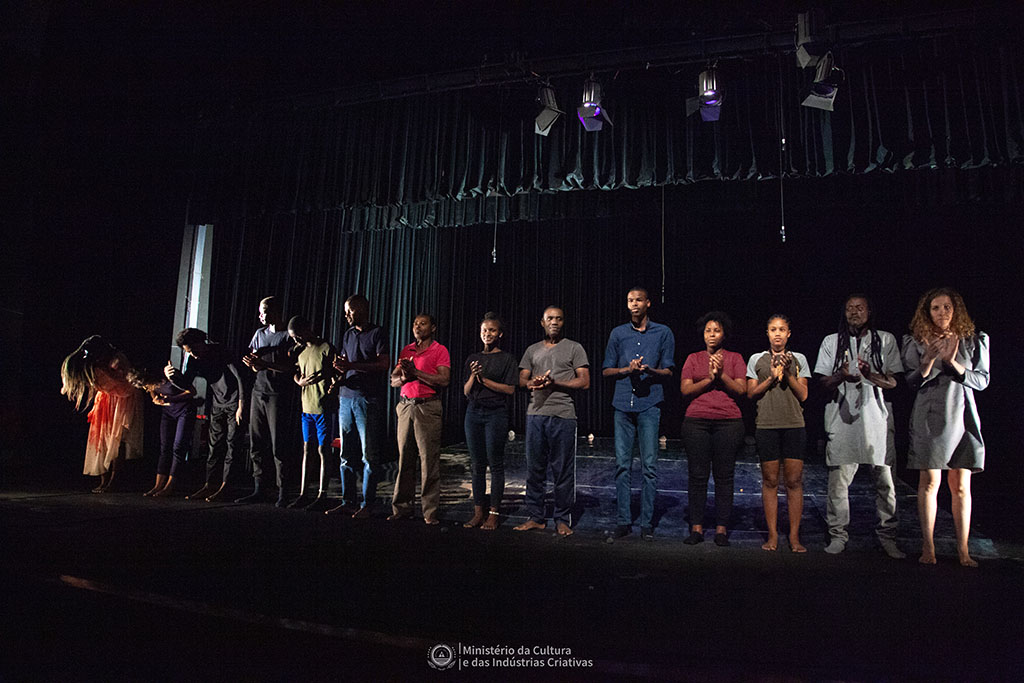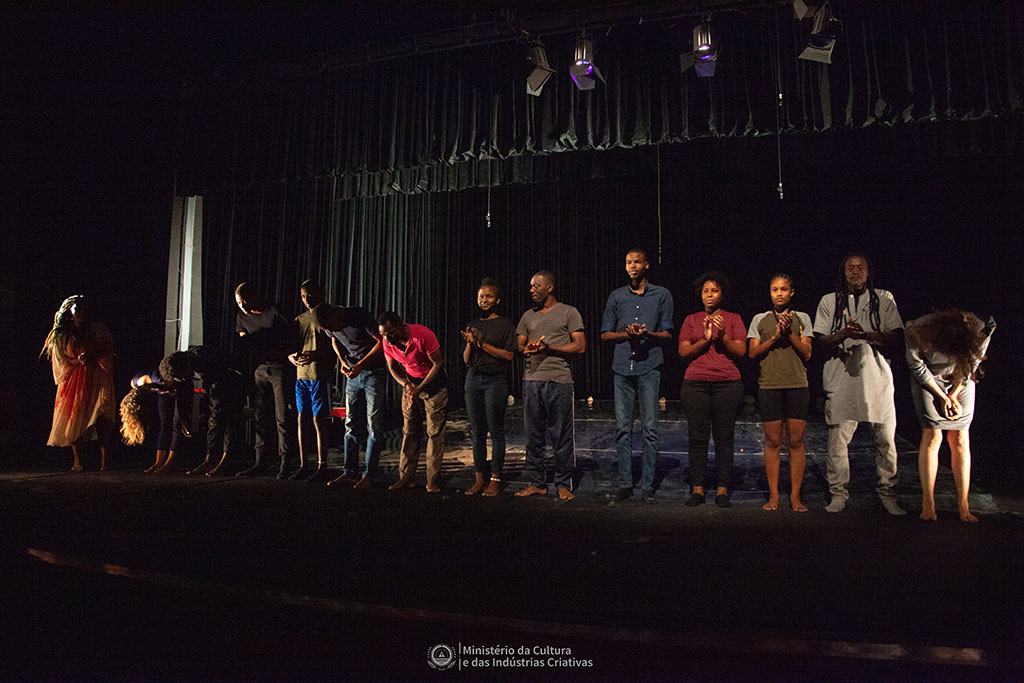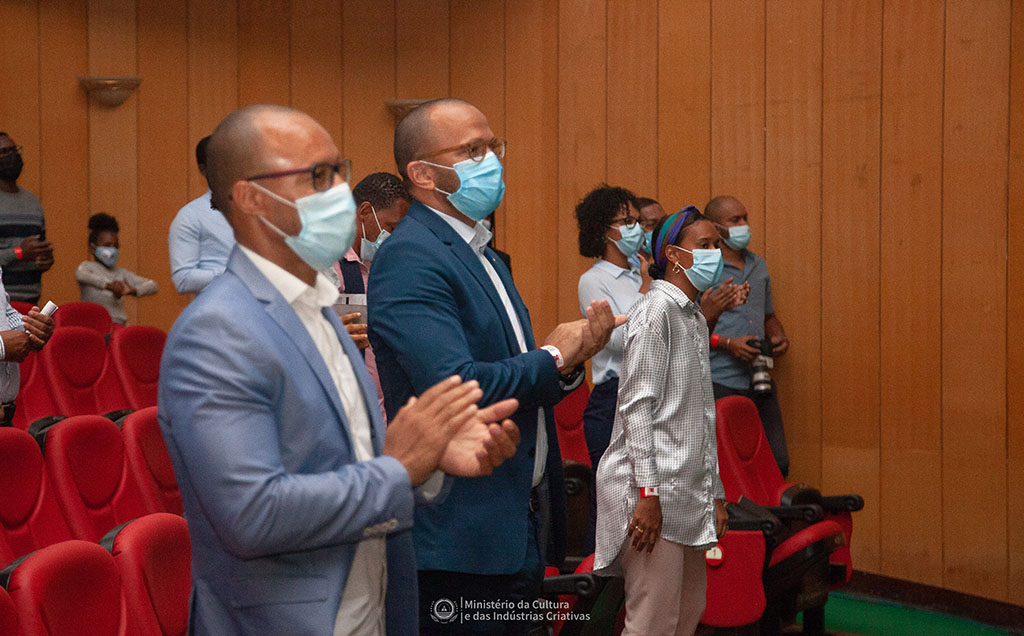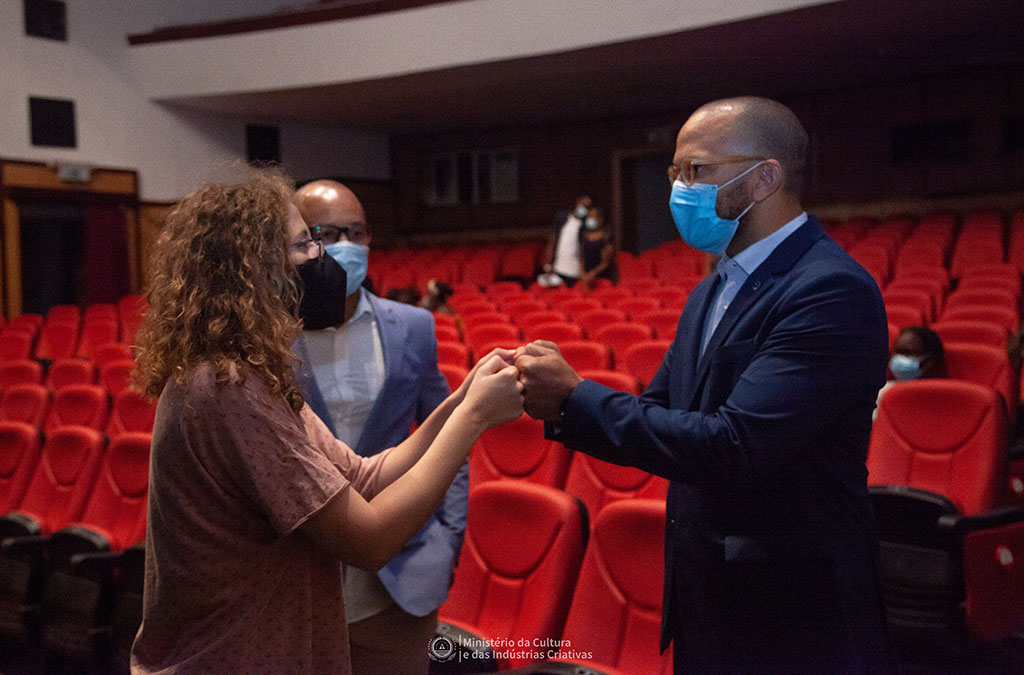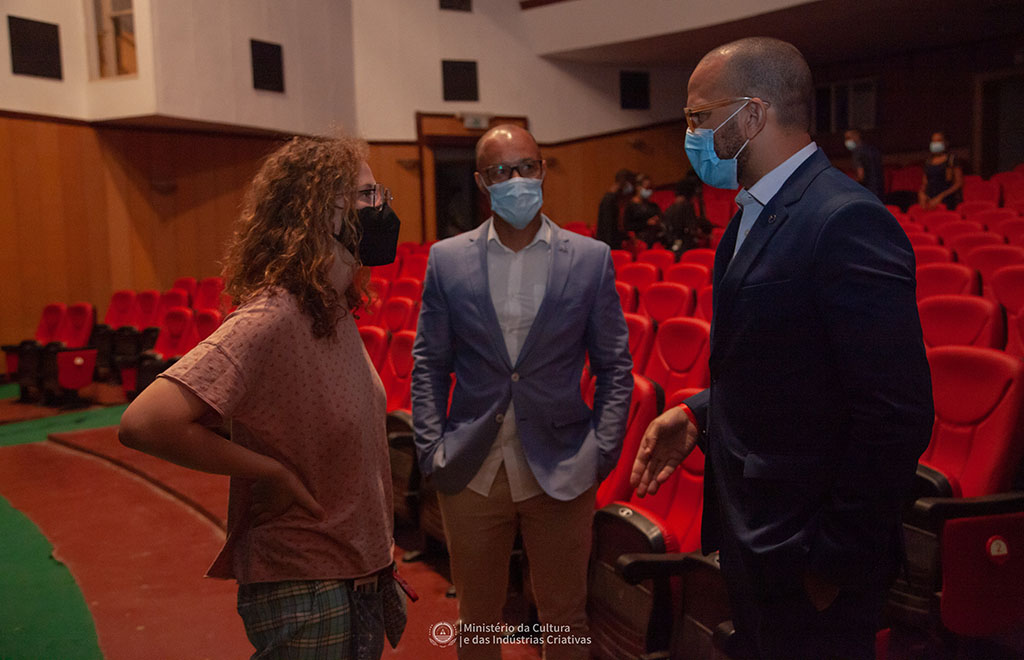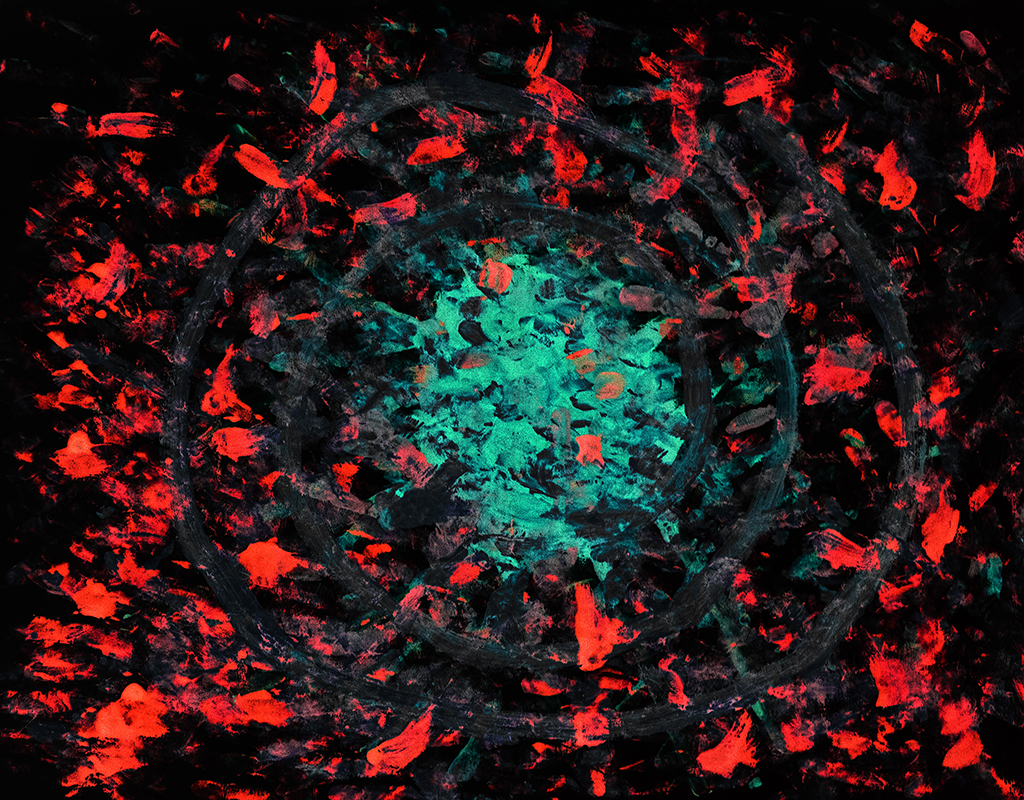Second Sacrifice - An Example for João Vário
Premiere on 25 February 2021 at the Jorge Barbosa National Auditorium, Praia, Cape Verde
Synopsis
From the heights of a possible humanity, three women analyse a morgue of coeval memories. The memories are the fetal bond between their three identities and, in this necropsy, the will for a new dialogue, a new vocabulary, the will to make another one, will pulsate.
humanity. For the new beginning and communion, the bodies on stage are initially particles and then hosts of a metaphysical liturgy, which is devoured so that we can walk freely among what binds, transforms and designates us. It's not a walk that ignores, it's a conscious movement of those who know that they are treading ground bathed in blood and inequality - archaeologies of the object under observation. In the morgue, it seems to be too late to ascertain the identity and belonging of the memory that resonates on the stretcher and moves centuries of dust accumulated not by silence, but by the omission of listening.
The earth stretches out in front of us with its voracity and its cold, it shies away from dialogue but accumulates its monologues, we hear it on even days.
About the poet "of almost infinite reasoning"
João Vário, pseudonym of João Manuel Varela (Mindelo, 7 June 1937 - Mindelo, 07 August 2007), was Djom in his family, in pseudonyms Timóteo Tio Tiofe, G. T. Didial, but above all João Vário. From his life as a migrant, especially between Cape Verde, Portugal and Belgium, he left us many questions, from medicine to literature. We can certainly describe him as a major figure in 20th century poetics, although he was hampered by the historical circumstances in which he thought freely.
"What happened was that he started publishing when African literatures were in a phase of great militancy," says essayist Osvaldo Silvestre. "And his position is very indifferent to all this. He has little to do with African literature. His main reference is the Bible, (...) there are almost no references to blackness." The writer, who publicly dreamt up the first Cape Verdean university, affirms his Africanness even though he assumes the influences of Western culture. Perhaps this is why, as José Luís Tavares notes, "he is not studied in Africanist circles. He's a kind of pariah". In his own words, his poetry wanted to "capture some characteristic of the world's diction, which no one can claim is easy or obvious or aimed directly at our ears". "And it's a task carried out with a large part of the tradition of universal poetry on its shoulders, because the technique of verse has humbly tried to make use of various sources in order to be truly its own, to forge a way and a path, a character of its own, of a metaphysical nature."
From João Vário, o poeta quase secreto, by Alexandra Lucas Pires, originally published in Público newspaper on 11 August 2007
IN THE WORDS OF THE DIRECTOR
An inclined plane, a ramp, a morgue table or a fusion of plane and table on which lifeless bodies are placed summarises the setting of this show, which favours the sterility of metal to create a living environment, but where a silence that answers questions predominates. Answering questions without worrying about getting it wrong or getting it right. The staging endeavours to work with the idea of concrete action in a different morphology or space-time metric. It couldn't be any other way, since theatre is an art that is the enemy of abstraction. The particle that makes abstraction unfeasible in theatre is precisely the human body or figure, which, despite doing so, does not make time and space unfeasible as malleable realities. The body, symbol of humanity, relates to the inclined plane, never contradicting it, but accepting its flow and its physical conditions, but this humanity intends to move and walk towards a place that is also of humanity. Accepting the flow
of the inclined plane and its physical conditions is first and foremost a study, a listening and a dialogue, because this humanity knows that only by feeling this accidentalness can it finally be opposed - to feel is to perceive. Opposing this forced descent can only be done through new ways of listening, observing and perceiving.
Herlandson Duarte
Herlandson Lima Duarte - Actor and Director, was born in Mindelo - Cape Verde in 1986. He has been involved in the performing arts since he was 17. In March 2017 he completed his Master's degree in Theatre, specialising in Directing, at the Lisbon School of Theatre and Cinema. His research is related to led light, virtual reality and the creation of 3D images in real time. In Cape Verde he founded the Solaris Theatre Company, one of Cape Verde's most international theatre groups. In 2007 he took part in the Calouste Gulbenkian Foundation's Creativity and Artistic Creation Programme. Her work has been presented at various international theatre festivals in Angola, Brazil (Rio de Janeiro, São Paulo, Teresina, São Carlos, São Sebastião) and Portugal (Lisbon and the Azores). He has been interested in contemporary dance since 2010. In 2011 she collaborated with the Tanztheatre-Global dance company on the show Sonho em Movimento. In 2013 she took a professional course in contemporary dance and traditional African dance at the École de Sables - Senegal. In 2014 she took part in the show TECHONOLOGIZING US by the dance company Dancenema based in Portimão-Portugal. Between 2009 and 2013 he worked as a reporter, presenter and content creator for Cape Verde's Televisão Independente - TIVER, but before that, in 2008, he was at Canal Futura in Rio de Janeiro (Roberto Marinho Foundation) for training in journalism, television and community mobilisation techniques.
She has lived in Lisbon since 2014, where she studies, works and develops her artistic work. In 2016 she took part in the cycle of new creators - Try Better Fail Better, at the Taborda Theatre, and presented her latest creation, the show Zero - Ultima imagem. In November 2018, at the invitation of the Escola Superior de Teatro e Cinema, he took part in the Fast Forword Festival. A meeting between young directors from all over Europe that took place in November 2018 in the city of Dresden - Germany.
Technical sheet
Artistic Direction - Herlandson Duarte
Dramaturgy - José Pinto and Herlandson Duarte, from "Examples" by João Vário
Adaptation - José Pinto
Interpretation - Cátia Terrinca, Nádia Yracema and Rita Couto
Music and Sound Design - N'du Carlos
Technical Direction and Design - João P. Nunes
Light Design - João P. Nunes and Bembe Quembe
Construction and Assembly Support - Mano Preto and Álvaro Soares Cardoso
Costumes - Boubacar Baessa Ba
Production Support - Nedine Tavares Mendes and Jocy Vera Brito de Pina Barbosa
Production - A COLLECTIVE
Co-production - Cape Verde's Directorate General for the Arts and Creative Industries and Lendias d'Encantar
#18 UMCOLETIVO PROJECT
Support
DGartes, Municipality of Elvas, CCP da Praia, Nascimento & Filhos, Cool Guest House Hostel.
Thank you
The Space of Time, António Neves, Ponto d'arte team,
Fladu Fla Group, Praia Confort Hotel team, Mizé Varela and Ghislene Tavares.
